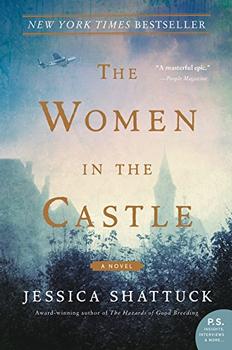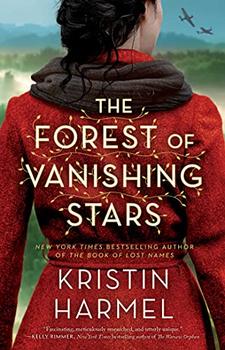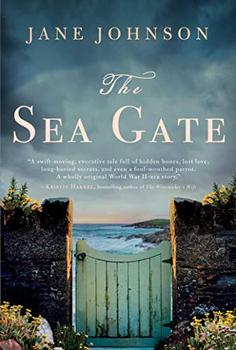Summary | Excerpt | Reading Guide | Discuss | Reviews | Beyond the book | Read-Alikes | Genres & Themes | Author Bio

In The Women in the Castle, Shattuck narrates the experiences of three women during the rise and fall of Nazi Germany, and traces their very different paths in the years that followed. Through these stories, the author weaves in astute philosophical commentary on family, community, and complicity, and how the taint of guilt can be passed from one person to another, consuming lives in the process.
Marianne von Lingenfels is a staunch, conscientious aristocratic woman, wholly supportive of her husband and his fellow resisters' plot to assassinate Hitler (see 'Beyond the Book'). When the plan fails, and the resisters are executed, the widowed Marianne vows to look after the wives and children who are left behind, by bringing them to her inherited castle in the country. The bereaved include Benita Gruber, the seemingly young and frivolous spouse of Marianne's childhood sweetheart, and Ania Grabarek, who is not quite what she seems. When the war ends, the characters struggle to regain their footing. Benita tries to love again, Ania tries to secure a future for her sons, and Marianne tries to hold her makeshift family together, but they are all stunted in their own ways, and each feels alone with her grief and regret.
At the center of the novel is a question about different degrees of responsibility, for war, oppression, persecution, and so forth. This is particularly shown through the character of Ania, based on Shattuck's grandmother, who was a member of the Nazi party. We see Ania graduate from minor moments of complicity, accepting clothing that she knows has been taken from "relocated" Jews, to grander acts – blatantly ignoring the horrors she doesn't want to hear or see. But is she irredeemable? She certainly thinks so, remarking to her daughter many years later, "Forgiveness! God forbid! I would never ask for that!"
Marianne, though seemingly the protagonist, is the least compelling character. Her backstory is barely sketched in, and she is not particularly likable. She is rigid and judgmental, but she serves as a foil to the two other, more interesting women, and she has her own battle with complicity. While she is the seemingly righteous wife of a resister dedicated to helping women and children, an act of domineering meddling results in tragedy.
In addition to the three women, Shattuck provides the perspectives of their children to add emotional depth and demonstrate the lifelong effects of the war. One of the more wrenching moments occurs when Marianne reunites Benita's son Martin with his mother, who is living in sexual slavery among a group of Russian soldiers. Martin's view of Berlin's "cavern-like streets" and leveled buildings "Like sand castles taken down by waves" is a haunting descriptive moment. Martin is also shown shrinking at his own possible complicity, viewing a billboard featuring images of concentration camp victims, emblazoned with the words "YOUR GUILT."
Shattuck's settings often serve symbolic functions, particularly the absurdity of the women living in a grandiose castle, surrounded by beautiful and expensive objects, at a time of profound privation. "What was the point of a Chinese silk pinafore sewn by Weisslau's finest tailor when you didn't have a pair of shoes," Marianne wonders. There is a vast reserve of Holocaust literature, much of it dealing with similar themes, loss, survival, guilt, etc., but the author makes her mark with details like these, and the eschewing of, or even subverting, some of the overly sentimental tropes of the genre.
Regret is a visceral presence in the novel, a testament to the author's talent for sustaining tension. One character describes a man from her past as "a body washed up in her mind, dragging the tangle of her own bad choices like so much kelp." The concepts of complicity and resistance are always politically relevant, such is the world we live in, but Shattuck provides an excellent, subtle reminder of what it looks and feels like to be on the wrong side of history.
![]() This review was originally published in The BookBrowse Review in May 2017, and has been updated for the
January 2018 edition.
Click here to go to this issue.
This review was originally published in The BookBrowse Review in May 2017, and has been updated for the
January 2018 edition.
Click here to go to this issue.

If you liked The Women in the Castle, try these:

by Kristin Harmel
Published 2022
The New York Times bestselling author of the "heart-stopping tale of survival and heroism" (People) The Book of Lost Names returns with an evocative coming-of-age World War II story about a young woman who uses her knowledge of the wilderness to help Jewish refugees escape the Nazis—until a secret from her past threatens everything.

by Jane Johnson
Published 2021
A broken family, a house of secrets - an entrancing tale of love and courage set during the Second World War.
If there is anything more dangerous to the life of the mind than having no independent commitment to ideas...
Click Here to find out who said this, as well as discovering other famous literary quotes!
Your guide toexceptional books
BookBrowse seeks out and recommends the best in contemporary fiction and nonfiction—books that not only engage and entertain but also deepen our understanding of ourselves and the world around us.